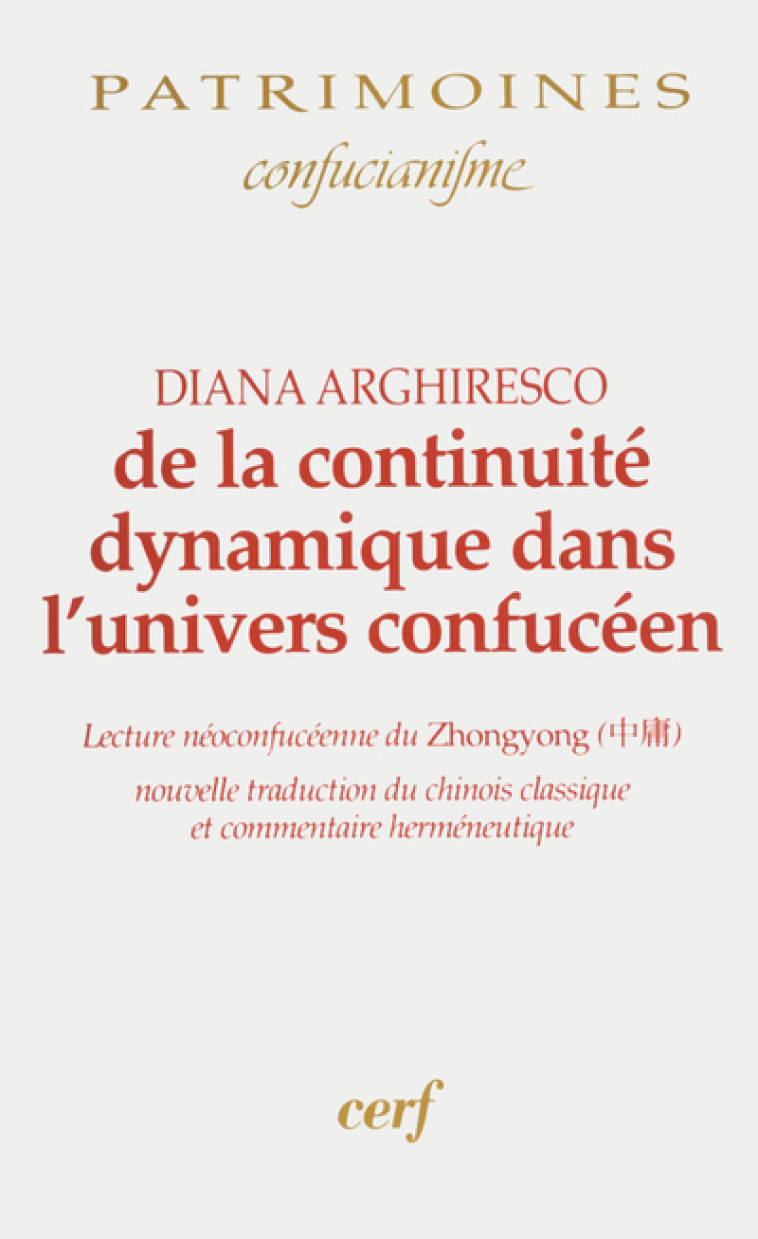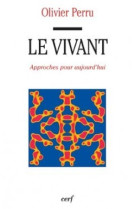De la continuité dynamique dans l'univers confucéen
Diana arghiresco
Voici traduit, pour la première fois en français, le « Zhongyong » (Ve siècle avant J.-C. environ), un des « Quatre Livres » fondamentaux du néoconfucianisme, accompagné du commentaire de Zhu Xi (1130-1200), grand néoconfucéen de la dynastie des Song. Instituée en doctrine politique orthodoxe, la pensée de Zhu Xi s'imposera dans la vie politique et sociale de la Chine en tant qu'idéologie d'État, et cela jusqu'à l'effondrement de l'empire. Le rayonnement de sa personnalité, son engagement social et politique, son oeuvre furent exceptionnels : après Confucius et Mencius, Zhu Xi a influencé non seulement la société et les institutions de la Chine, mais aussi celles de l'Asie de l'Est, du XIVe siècle jusqu'à nos jours. Dans cet ouvrage, Diana Arghiresco, philosophe et sinologue, se livre à une réflexion herméneutique visant à mettre en dialogue les sources de la pensée chinoise et le fonds grec de la philosophie occidentale. Elle tisse ainsi un lien entre le traducteur, le lecteur occidental, le texte chinois ancien et son commentaire chinois de l'époque classique. Son interprétation interculturelle met en lumière deux strates simultanées de cohérence du texte : un sens restreint visant la société, plus particulièrement la conduite humaine, et un autre qui contient le premier et se réfère à l'ordre naturel, à la totalité continue, à la complétude de la réalité.
--
Translated into French for the first time, the ‘Zhongyong' (5th century BC) - one of the ‘Four Books'- founding texts of neo-Confucianism, with a commentary from Zhu Xi (1130-1200), the great neo-Confucian philosopher of the Song dynasty. Established as an orthodox political doctrine, the thoughts of Zhu Xi were imposed in China's political and social life as a State ideology, until the collapse of the Empire. The influence of his personality, his social and political commitment, and his work were all exceptional. After Confucius and Mencius, Zhu Xi influenced not only society and institutions in China, but also throughout East Asia, from the 14th century till our times. In this book, Diana Arghiresco, philosopher and sinologist, conducts a hermeneutical reflection, whose aim is to create a dialogue between the sources of Chinese philosophy and the Greek founding texts of Western philosophy. She forges a link between the translator, the Western reader, the ancient Chinese text and its Chinese commentary of the classic period. Her intercultural interpretation casts light on two simultaneous levels of the text's rationale: a more restricted level addressing society, especially human behaviour and a second which includes the first, but also refers to a natural order, a continuing totality and the completeness of reality.








